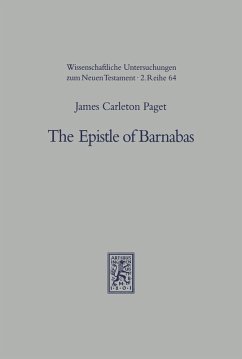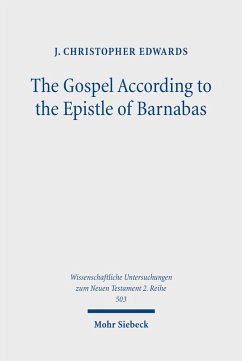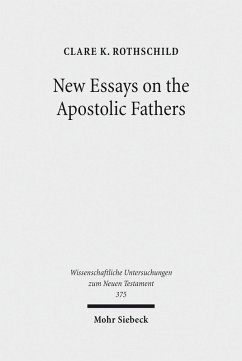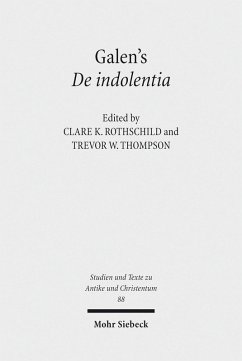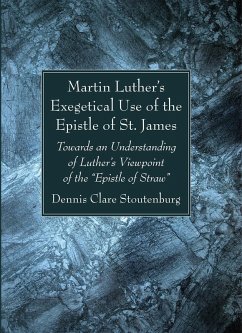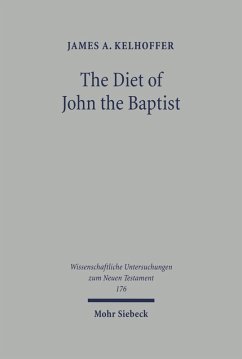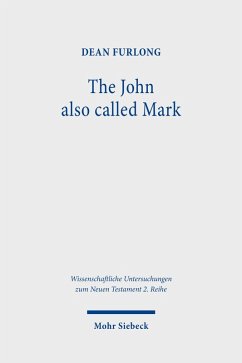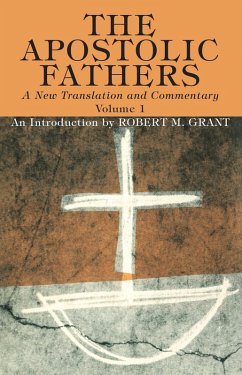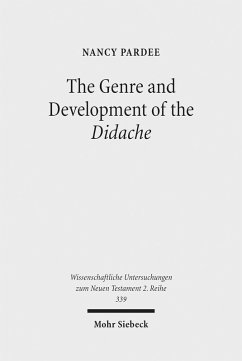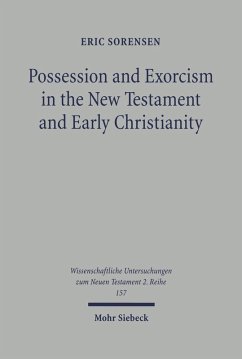
The Epistle of Barnabas and the Deuteronomic Tradition (eBook, PDF)
Polemics, Paraenesis, and the Legacy of the Golden-Calf Incident

PAYBACK Punkte
0 °P sammeln!
The Epistle of Barnabas, an anonymous Christian writing of the late first or early second century C.E., makes a provocative claim: because of its worship of the golden-calf, Israel lost its covenant status forever at Sinai. As a result of this bold assertion, many recent scholars have concluded that Barnabas disinherits the Jews at Sinai and has no notion of 'salvation history.' In this work James N. Rhodes reassesses the theology of the Epistle of Barnabas, seeking to reopen the question of the author's view of Israel. He claims that recent scholarship has focused too narrowly on Barnabas's t...
The Epistle of Barnabas, an anonymous Christian writing of the late first or early second century C.E., makes a provocative claim: because of its worship of the golden-calf, Israel lost its covenant status forever at Sinai. As a result of this bold assertion, many recent scholars have concluded that Barnabas disinherits the Jews at Sinai and has no notion of 'salvation history.' In this work James N. Rhodes reassesses the theology of the Epistle of Barnabas, seeking to reopen the question of the author's view of Israel. He claims that recent scholarship has focused too narrowly on Barnabas's treatment of the golden-calf incident, overlooking the author's equally strong interest in the death of Jesus and the destruction of Jerusalem. The author suggests that the apostasy at Sinai serves Barnabas as a dramatic illustration of Israel's failures. It does not, however, mark the end of Israel's story. He identifies several indications that Barnabas believed Israel's covenant remained intact long after the golden-calf incident. He further shows how Barnabas subtly but repeatedly links the rejection of Jesus to the destruction of Jerusalem, concluding that this connection is of the highest importance for understanding the author's view of Israel's legacy. James N. Rhodes situates the author's thought within the ongoing Deuteronomistic tradition by comparing the epistle to several Jewish and Christian writings that evince similar interest in the destruction of Jerusalem and the status of Israel's covenant. He concludes that the Epistle of Barnabas was written in the early second century to warn Gentile Christians of the danger of failing to live up to God's covenant. The fate of Israel is viewed as a cautionary tale that the privileges of the covenant can indeed be lost. Born 1966; 1989 B.A., Oral Roberts University; 2000 M.A., 2003 Ph.D., The Catholic University of America; Presently serves as a Teaching Fellow in the School of Theology and Religious Studies at the Catholic University of America.
Dieser Download kann aus rechtlichen Gründen nur mit Rechnungsadresse in A, B, BG, CY, CZ, D, DK, EW, E, FIN, F, GR, HR, H, IRL, I, LT, L, LR, M, NL, PL, P, R, S, SLO, SK ausgeliefert werden.




